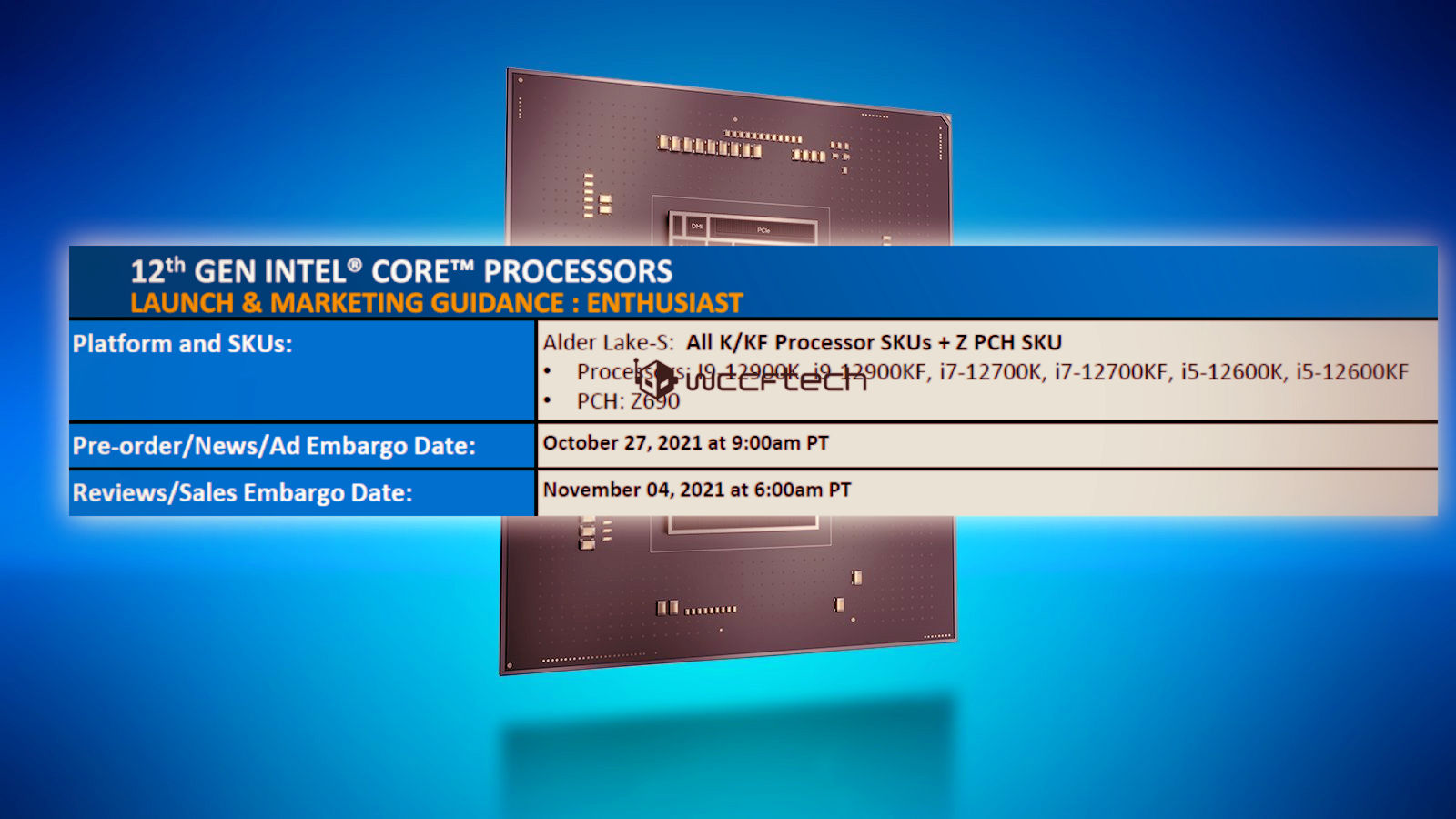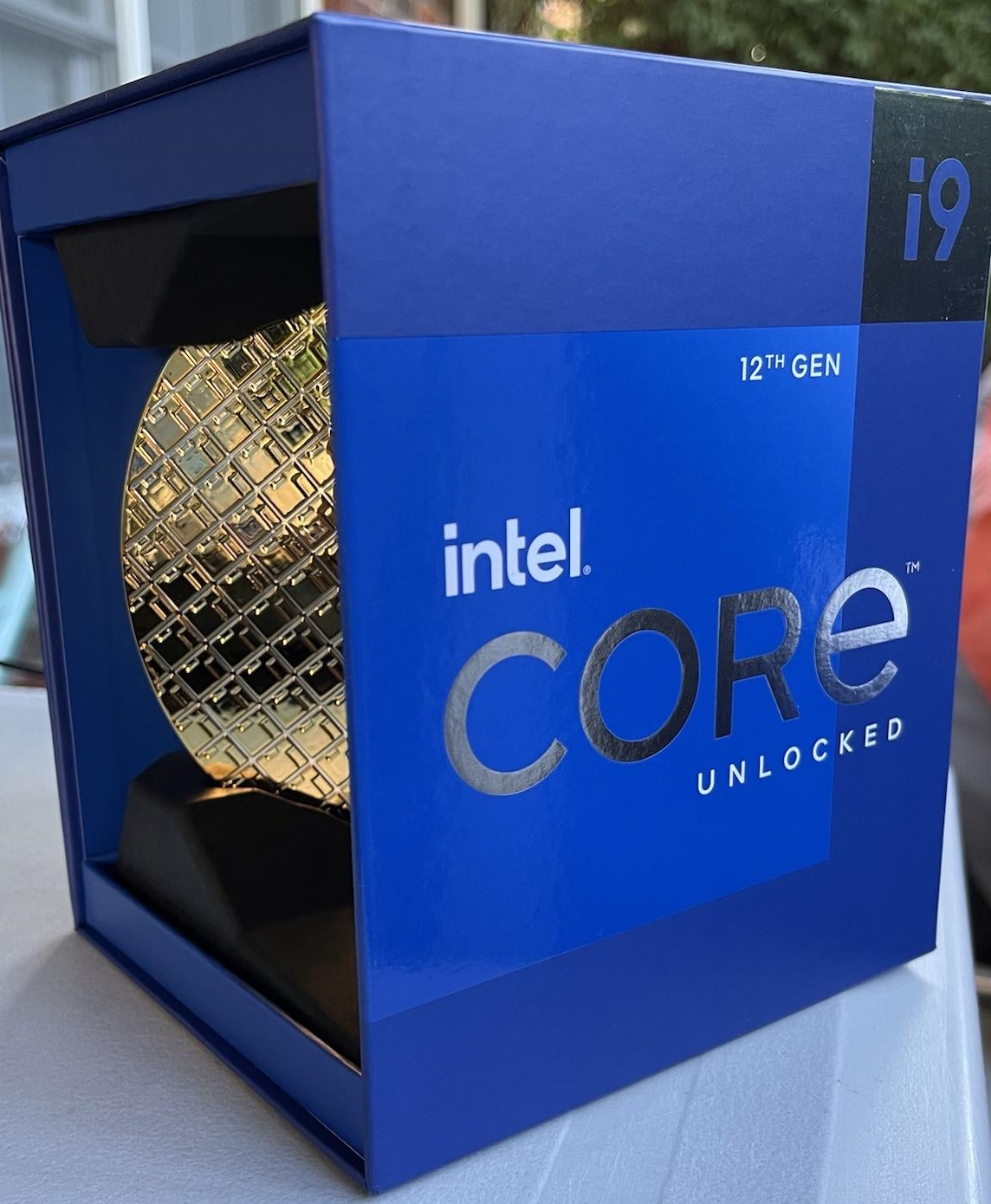Well, good timing for Christmas sales and post New Year sales (gotta spend those gift cards and checks).
Intel Alder Lake announcement and preorders confirmed for October 27th, launch on November 4th - VideoCardz.com
Intel launch date confirmed: November 4th Wccftech shares information on embargo dates for the upcoming Intel 12th Gen Core series. Intel is to announce Alder Lake desktop processors on October 27th. This is the embargo date that has been listed in the document that has been leaked today...videocardz.com
Further confirmation that the launch is on the 27th and they've decided on Nov 4th for the release.
Apparently, from WccfTech, this info is from this graphic:



